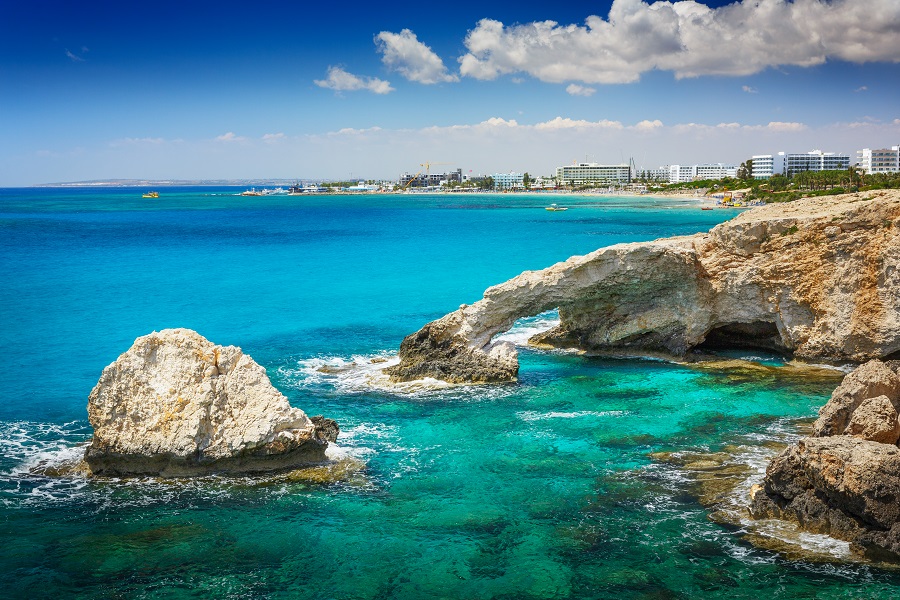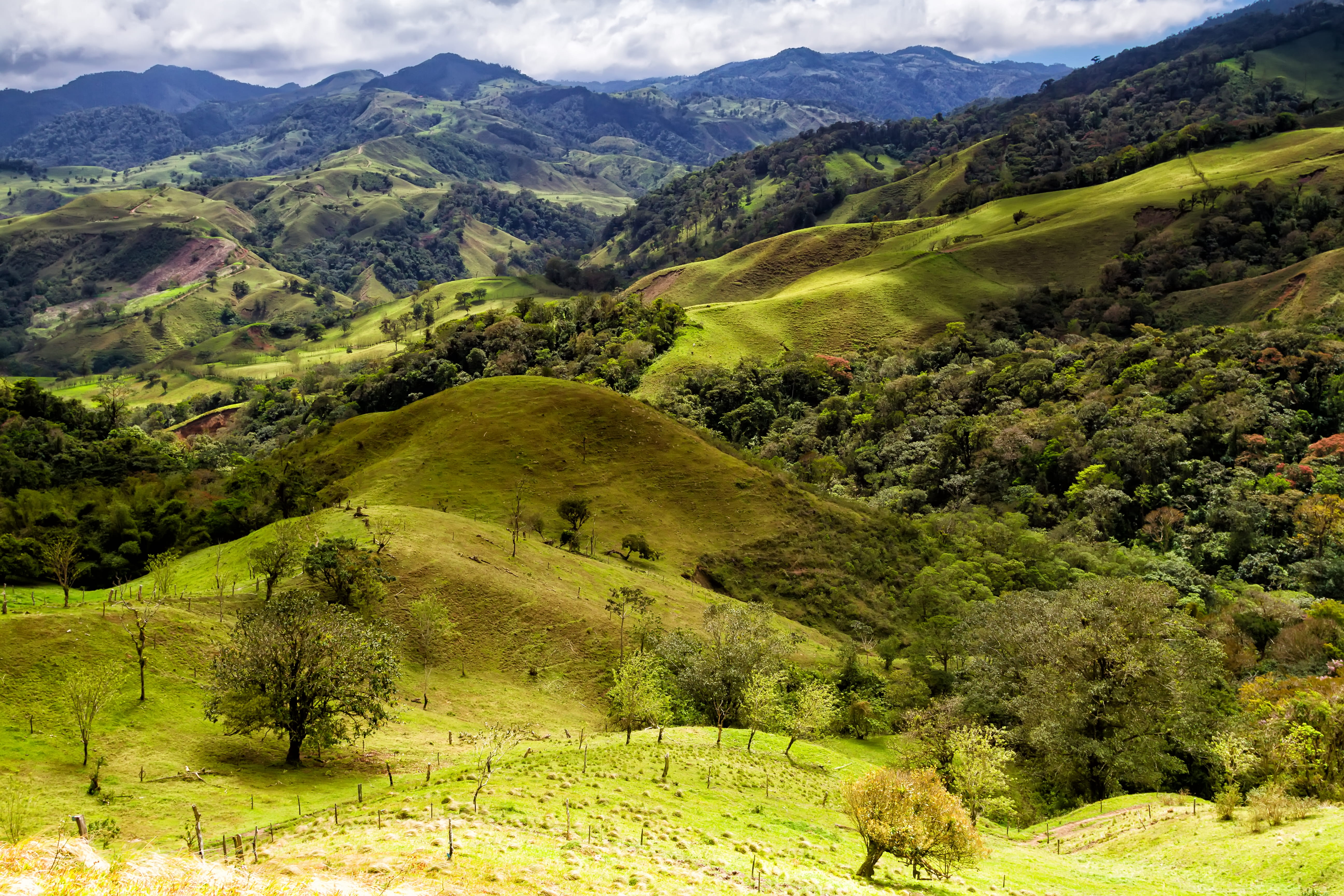Why You Need to Visit Cyprus: A Journey Through Time, Culture, and Adventure
May 8th 2025
If you're thinking of your next travel destination, let’s talk about a place that doesn’t just offer sun-drenched beaches and ancient ruins, but something far more intriguing.
A place where history isn't locked away in museums but stands frozen in time along cracked sidewalks and crumbling hotels. Where the past collides with the present in ways that are both haunting and inspiring.
Yes, I am talking about Cyprus.
This Mediterranean gem is not just another island getaway—it's a living storybook, a fusion of cultures, a crossroads of civilisations, and now, one of the fastest-rising stars in global tourism.
With record-breaking visitor numbers in 2025, the reopening of the enigmatic ghost town of Varosha, and a cultural renaissance sweeping across its cities and countryside, there’s never been a better time to ask yourself:
Why You Need to Visit Cyprus Now?
Let’s dive into what makes this island so special—and why it should be at the top of your travel list.
Present-Day Cyprus: A Record-Breaking Travel Boom
Despite its turbulent past, Cyprus is enjoying a tourism renaissance. The first quarter of 2025 witnessed a historic milestone: 450,000 arrivals, a record-setting figure that points to a strong recovery and renewed global interest in the island.
Harris Papacharalambous, President of the Cyprus Travel and Tourism Agents Association (ACTTA), estimates that total tourist arrivals could reach 4.25 million by the end of 2025—an impressive leap that reflects Cyprus’s rising popularity. If current trends continue, the island may even surpass 2 million visitors in a single quarter, a goal that is “not far away,” according to recent data from Hermes Airports. Passenger traffic from both of Cyprus’s main airports is expected to hit 6.5 million in 2025.
Events like the 26th Travel Expo Cyprus 2025 have further amplified interest, drawing over 10,000 local and international visitors exploring travel offers, package deals, and future travel opportunities.
On the domestic front, Cypriots are also travelling more. In 2024, there were 1.75 million trips from Cyprus abroad, marking a 4.4% increase compared to 2023. This dual flow of inbound and outbound travel suggests a vibrant and growing travel culture on the island.
A Living Timeline: Step Into Thousands of Years of History
When people say Cyprus has history, they’re not exaggerating. This island has seen the rise and fall of empires—Egyptian, Persian, Roman, Byzantine, Ottoman, British… the list goes on. But unlike other historic destinations where ruins sit behind velvet ropes, history feels alive and accessible here.
Start your journey in Paphos, a UNESCO World Heritage Site and European Capital of Culture in 2017. Wander through the Tombs of the Kings, a sprawling necropolis carved into limestone cliffs, or marvel at the vibrant mosaics in the Villa of Theseus. Each tile tells a mythological tale, and each column whispers secrets from centuries ago.
Then head inland to Kourion, where an ancient Greco-Roman theatre still hosts performances under the stars. Picture yourself watching Shakespeare by moonlight, surrounded by olive trees and the distant hum of the sea.
And if you're craving something truly unique? Don’t miss Choirokoitia, a Neolithic settlement dating back to 7000 BC. Yes, you read that right—seven thousand years old. Walking among these circular stone houses gives you a rare glimpse into prehistoric life.
Varosha: The Ghost Town That’s Capturing the World’s Imagination
Once a glittering resort town in Famagusta, Varosha was the Beverly Hills of the Mediterranean in the 1960s. Celebrities like Elizabeth Taylor and Brigitte Bardot strolled its golden sands, sipping cocktails in luxury hotels that towered over the seafront.
But in 1974, war changed everything.
The town was abruptly abandoned overnight when Turkish forces took control during the Cyprus conflict. For nearly 50 years, it stood untouched—a decaying paradise sealed off by barbed wire, left to the mercy of wind and time.
Parts of Varosha were finally reopened to visitors in October 2020. What awaits you isn’t a typical tourist spot—it’s eerie, moving, and deeply thought-provoking. Crumbling facades, rusted cars, and faded signs whisper stories of lives interrupted. It’s no wonder dark tourism is booming here.
Over 1.8 million people have visited since the partial opening, drawn by curiosity, history, and a desire to understand the human side of conflict. Social media influencers, historians, and curious travellers alike are sharing their experiences online, sparking global interest.
Guided tours are now available, offering context and insight into the region's political complexities. If you're looking for a destination that challenges your perspective while delivering raw beauty, Varosha is it.
Sun, Sea, and Scenery: Beaches That Will Steal Your Heart
Of course, no trip to Cyprus would be complete without soaking up some sun. With over 600 kilometres of coastline, the island is a beach lover’s dream.
Head to Lara Beach, famous for being a nesting site for endangered loggerhead turtles. Walk along the soft sand at sunrise and look for hatchlings making their way to the sea.
For something more secluded, try Cape Greco National Forest Park, where turquoise waters meet rugged cliffs. The sea caves and natural arches make for stunning photo ops, especially at sunset.
Looking for a party vibe? Then Ayia Napa is your spot. Known for its nightlife and water sports, it’s perfect for those who want to dance until dawn and wake up to parasailing over crystal-clear waters.
Or maybe you prefer a quieter escape? Check out Nissi Beach in Protaras, consistently ranked among the best beaches in Europe. With its calm, shallow waters and white sands, it’s ideal for families or anyone looking to unwind.
Cyprus delivers the kind of coastal beauty that Instagram dreams are made of, without the crowds you’d expect in other Mediterranean hotspots.
Culture Clash and Culinary Delights: A Taste of Two Worlds
One of Cyprus's most fascinating aspects is its cultural duality. The island is divided into two main regions: the Greek-speaking south and the Turkish-speaking north. While politics remain complex, the blend of influences creates a rich, diverse experience for travellers.
In the south, indulge in traditional Greek Cypriot dishes like souvlaki, halloumi cheese and meze —a feast of small plates that could feed a village. Try Commandaria wine, a sweet dessert wine that’s been produced on the island for over 5,000 years. In fact, it holds the title of the world’s oldest named wine, recognised by the EU as a protected designation of origin (PDO).
Cross into the north, and Turkish flavours mingle with local traditions. Sample lahmacun (Turkish-stle pizza), iskender kebab , and freshly baked gozleme . Street food markets in places like Kyrenia (Girne) offer a sensory overload of spices, aromas, and colours.
Don’t miss out on a sweet treat, either. From lokum (Turkish delight) to Loukoumades (honey-soaked dough balls), every bite tells a story of shared heritage.
Whether you're dining in a seaside taverna or grabbing street food in a bustling bazaar, Cypriot cuisine is a delicious reflection of its layered identity.
Adventure Awaits: Explore Nature Like Never Before
Beyond the beaches and history, Cyprus is a playground for outdoor enthusiasts. Whether you're into hiking, cycling, diving, or horseback riding, there’s no shortage of adventure.
Start in the Troodos Mountains, which cover nearly half the island. This lush highland region offers breathtaking landscapes, charming villages, and over 300 km of marked hiking trails. The Troodos Wine Route is particularly popular, taking you through vineyards, monasteries, and family-run wineries.
For adrenaline junkies, the Akamas Peninsula is a must-visit. This protected area is home to dramatic cliffs, hidden coves, and challenging dirt tracks. Mountain biking through Akamas feels like riding through a postcard—especially if you stop at Blue Lagoon, a secluded bay known for its surreal turquoise waters.
If you love underwater exploration, the Zenobia wreck near Larnaca is considered one of the best dive sites in the world. This massive Swedish ferry sank in 1980 and now lies perfectly preserved at depths ranging from 16 to 43 meters. Divers can explore its cargo holds, vehicles, and marine life thriving around the structure.
Even closer to shore, Cape Greco Marine Park offers snorkelers and divers a chance to swim through underwater caves and encounter colourful fish, octopuses, and even sea turtles.
With its diverse terrain—from forests to deserts, mountains to coastlines—Cyprus is nature’s playground, waiting to be explored.
Festivals, Traditions, and Local Life: Experience Real Cypriot Culture
To truly connect with Cyprus, immerse yourself in its vibrant festivals and local traditions. Throughout the year, the island comes alive with music, dance, and celebrations that reflect its deep-rooted heritage.
In May, Limassol Carnival kicks off with parades, costumes, and street parties that rival Rio de Janeiro. Meanwhile, September brings the Limassol Wine Festival, where you can sample local vintages, enjoy folk dancing, and soak in the festive atmosphere.
In the north, Bellapais Abbey hosts classical music concerts in a stunning Gothic monastery setting. The acoustics are legendary, and the backdrop of rolling hills and orange groves adds to the magic.
Want to go deeper? Join a pottery workshop in Lefkara, where lace-making and ceramics have been passed down for generations. Or visit a traditional Cypriot coffeehouse in a village square, where men sip strong coffee and debate politics over backgammon.
These authentic experiences give you a real sense of daily life in Cyprus—far beyond what guidebooks can offer.
Travel Made Easy: Getting Around Cyprus and Staying Connected
Thanks to recent growth in tourism, getting to and around Cyprus has never been smoother.
The island is served by two international airports: Larnaca International Airport (LCA) in the south and Ercan International Airport (ECN) in the north. In 2025, combined passenger traffic is expected to hit 6.5 million, reflecting the surge in interest from Europe, the Middle East, and beyond.
Hermes Airports, which manages Larnaca and Paphos airports, has invested heavily in infrastructure, ensuring seamless arrivals and departures. Direct flights from major European hubs like London, Berlin, and Moscow make planning your trip easy.
Getting around is equally hassle-free. Renting a car to explore Cyprus is the most convenient way, with well-maintained roads connecting cities and rural areas. Public transport is improving too, with buses linking major towns and seasonal services to popular attractions.
Accommodation options are as varied as the landscape. From luxury beachfront resorts in Ayia Napa to boutique mountain villas in Omodos, there’s something for every budget and stle.
Digital nomads will appreciate the growing number of co-working spaces and fast internet speeds, especially in cities like Limassol and Nicosia. With initiatives to promote remote work-friendly stays, Cyprus is positioning itself as a lifestle destination, not just a holiday spot.
Is Travel Insurance Mandatory When Visiting Cyprus
Travel insurance is strongly recommended when visiting Cyprus, even though it is not a mandatory requirement for most travellers. While you won’t be denied entry solely for not having travel insurance, it provides essential financial protection in case of unexpected events such as medical emergencies, trip cancellations, lost luggage, or accidents during your stay.
This is especially important since healthcare costs can add up quickly if you require treatment while abroad. Although visitors from EU countries can use their Global Health Insurance Card (GHIC) to access state healthcare, this does not cover all services and is not a substitute for comprehensive travel insurance.
Travel insurance becomes mandatory only if you are entering Cyprus on a Schengen Visa, as visa regulations may require proof of coverage. For other nationalities, it remains optional but highly advisable to ensure peace of mind during your trip.
Quick Travel Tips for Visiting Cyprus – Smart Advice for a Smoother Trip
Visiting Cyprus is an unforgettable experience, but a little planning goes a long way. Here’s a curated list of essential travel tips that not only inform but help you make the most of your time on this beautiful island:
Best Time to Visit: April–October for Beach Lovers, November–March for HikersIf you're all about sunbathing and swimming, aim for summer (June–August), when temperatures average around 32°C. For cooler weather perfect for exploring nature trails like the Troodos Mountains or Akamas Peninsula, visit in spring or autumn, when temperatures are milder and crowds are thinner.
Currency: Euro (€) in the South, Turkish Lira (₺) in the NorthBe mindful of which side of the island you're on. While credit cards are widely accepted, it's wise to carry local currency, especially in rural areas or small shops. ATMs are plentiful, but always double-check transaction fees.
Languages: Greek & Turkish with English as a Common Second LanguageIn the south, Greek is official; in the north, Turkish. But don’t worry—English is spoken fluently across tourist areas, hotels, and restaurants. Learning a few basic phrases like “Yiasoo” (Hello) or “Efharisto” (Thank you) can earn you smiles from locals.
Must-Try Foods: Halloumi, Souvlaki, Meze, Moussaka & Commandaria WineDon’t leave without tasting grilled halloumi cheese, skewered souvlaki, or indulging in a meze feast with over a dozen dishes. Cap off your meal with Commandaria—the world’s oldest named wine, dating back thousands of years.
Entry Requirements: Visa-Free for Many, Check Before You BookCitizens of the EU, the US, Canada, and Australia can enter visa-free for up to 90 days. Others should verify requirements well in advance. Keep your passport handy, especially if crossing between north and south Cyprus.
These practical insights will help you navigate Cyprus and ensure your trip is as smooth as it is memorable.
Why Visit Cyprus: FAQs
Is it safe to travel to Cyprus right now?
Cyprus is currently considered a very safe destination for tourists. The island maintains a low crime rate, and political tensions in the north are largely contained and do not affect tourist areas. However, always check your government’s travel advisory before planning your trip.
Is it safe to visit Cyprus if there’s conflict in Israel or nearby regions?
Cyprus has remained politically neutral and stable despite regional conflicts. Its geographical position makes it a safe alternative for travellers looking to enjoy Mediterranean holidays without proximity to active war zones.
What is the best time to visit Cyprus?
The ideal time to visit Cyprus is during the shoulder seasons: May–June and September–October, when temperatures are pleasant (22–28°C), beaches are less crowded, and accommodation prices are more affordable. If you're visiting for beach holidays, summer months (July–August) can be hot and busy.
Do I need a visa to visit Cyprus?
Citizens of the EU, the US, Canada, the UK, Australia, and many other countries can enter Cyprus visa-free for up to 90 days. Always verify entry requirements based on your nationality before booking flights.
What should I pack for a trip to Cyprus?
Pack light clothing for warm weather, comfortable walking shoes for exploring ruins and villages, sunscreen, and a reusable water bottle. If visiting in winter, bring a light jacket for cooler evenings.
What are the must-see places to visit in Cyprus with family?
Cyprus is family-friendly! Must-visit spots include:
- Paphos Archaeological Park – UNESCO site with ancient mosaics
- Larnaca Salt Lake – great for birdwatching
- Fasouri Watermania – a fun water park
- Cape Greco National Park – scenic walks and sea caves
What is there to do in Cyprus besides lying on the beach?
Cyprus offers far more than sunbathing. You can:
- Explore ancient ruins like Kato Paphos Archaeological Park
- Hike through the Troodos Mountains
- Visit charming villages like Omodos
- Try local wines on the Troodos Wine Route
- Dive the Zenobia wreck near Larnaca
What food should I try when visiting Cyprus?
Don’t miss out on:
- Halloumi cheese – grilled or fried
- Souvlaki – skewered meat served with pita
- Meze – a tasting platter of over a dozen dishes
- Commandaria wine – the world’s oldest named wine
How does the currency work in Cyprus?
In the south (Republic of Cyprus), the official currency is the Euro (€). In the north (Turkish Republic of Northern Cyprus), it's the Turkish Lira (₺). While credit cards are widely accepted, carry local cash for smaller vendors and rural areas.
Where is Cyprus located, and how easy is it to get around?
Cyprus lies at the crossroads of Europe, Asia, and Africa, southeast of Turkey. It’s easily accessible via two main international airports: Larnaca (LCA) and Ercan (ECN). Renting a car is recommended for flexibility, as public transport is limited outside major cities.
Conclusion: Why You Need to Visit Cyprus – Before Everyone Else Does
So, why should you visit Cyprus?
Because it’s a place where history isn’t static—it breathes, echoes, and invites you to explore.
Because it’s a land of contrasts—where luxury meets decay, tradition dances with modernity, and east blends seamlessly with west.
Because it’s a rising star in global tourism, yet still retains that authentic charm that’s hard to find in mass-marketed destinations.
With record-breaking visitor numbers in 2025, the rebirth of Varosha, and a growing reputation for culture, adventure, and cuisine, Cyprus is having its moment.
And moments like this don’t last forever.
So, whether you're chasing history, seeking adventure, or just looking for a place that feels different, why you need to visit Cyprus becomes clearer with every step you take on its sunlit shores and cobblestone streets.
Pack your bags, book your car rental online with Finalrentals, and discover the island that’s rewriting the rules of Mediterranean travel.

































































